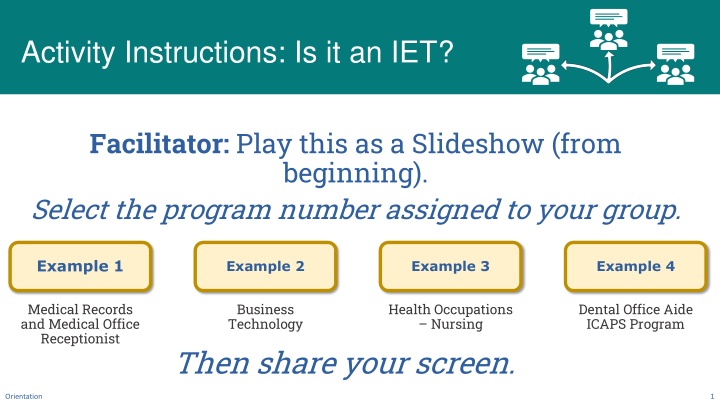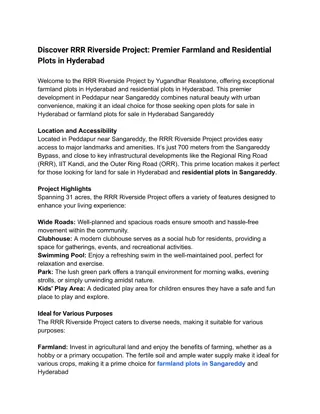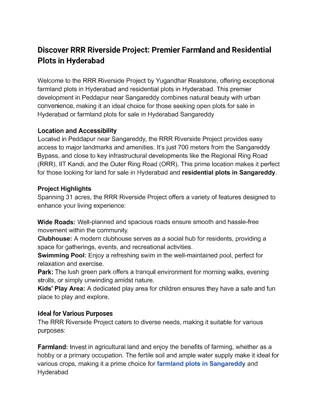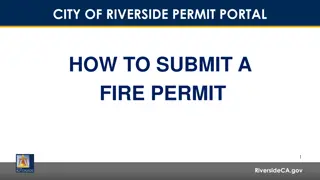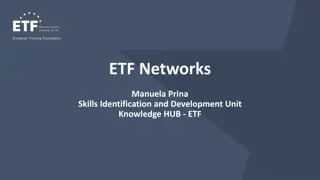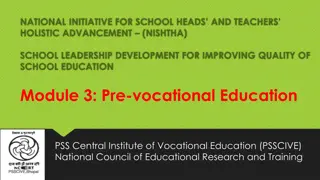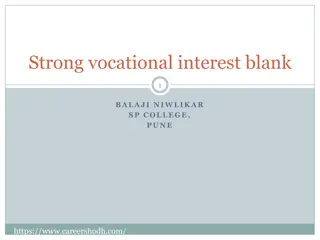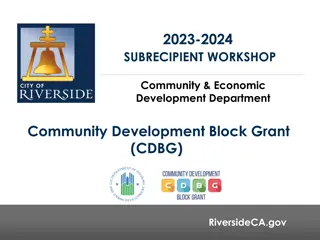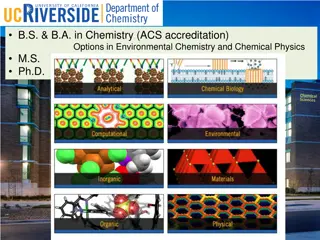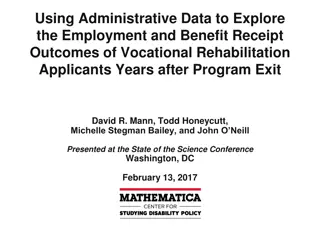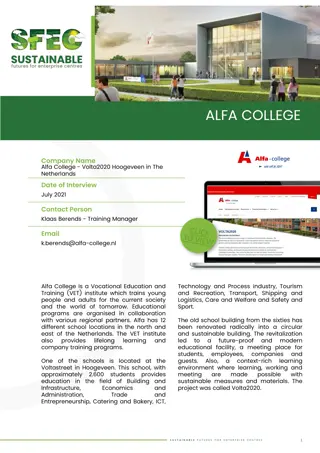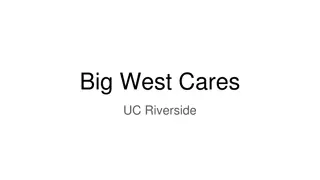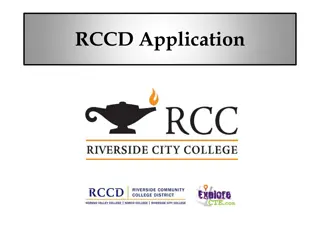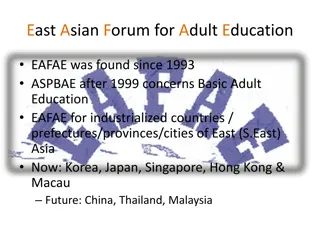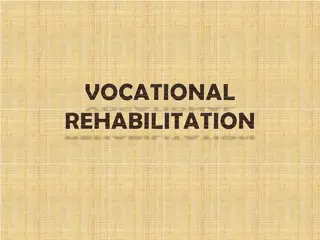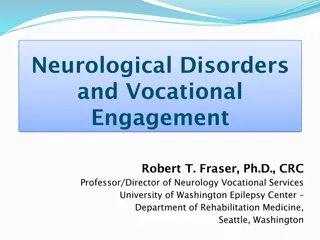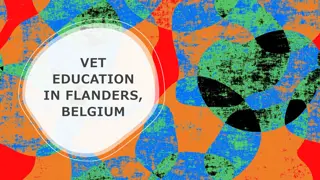Vocational Programs at Everytown Center and Riverside Institute
Everytown Adult and Continuing Education Center offers vocational programs in Medical Records and Office Receptionist, while Riverside Institute of Technology provides training in Business Technology. The programs focus on aligning with regional employment needs, providing comprehensive courses, and preparing students for entry-level positions in their respective fields. Both centers offer a combination of technical training, job preparation activities, and support services to help students succeed in the workforce.
Download Presentation

Please find below an Image/Link to download the presentation.
The content on the website is provided AS IS for your information and personal use only. It may not be sold, licensed, or shared on other websites without obtaining consent from the author.If you encounter any issues during the download, it is possible that the publisher has removed the file from their server.
You are allowed to download the files provided on this website for personal or commercial use, subject to the condition that they are used lawfully. All files are the property of their respective owners.
The content on the website is provided AS IS for your information and personal use only. It may not be sold, licensed, or shared on other websites without obtaining consent from the author.
E N D
Presentation Transcript
Activity Instructions: Is it an IET? Facilitator: Play this as a Slideshow (from beginning). Select the program number assigned to your group. Example 1 Example 2 Example 3 Example 4 Medical Records and Medical Office Receptionist Business Technology Health Occupations Nursing Dental Office Aide ICAPS Program Then share your screen. Orientation 1
MEDICAL RECORDS AND MEDICAL OFFICE RECEPTIONIST Everytown Adult and Continuing Education Center Everytown Adult and Continuing Education Center (Everytown Center) offers several adult education integrated occupational programs. Occupational programs align closely with the immediate employment needs in the region. The Everytown Center collaborates directly with the regional Local Workforce Development Board (LWDB) and offers programs directly related to employment needs and growth areas. The course structure for this program includes a one-week pre-vocational component, a 10- week technical/vocational program, and a one-week post-vocational class. The Medical Records and Office Receptionist course is 130 hours and is taught by adult education instructors in collaboration with experts in this vocational area. Key features of the vocational course include medical terminology, basic office management concepts, written and oral communications, and records security and management. Program Example #1 (Appendix A in the Participant Guide) The post-vocational class provides students with a debrief opportunity and an array of workforce preparation activities including certification testing preparation and job application. The Center collaborates with the local one-stop to provide modules on resume development, interviewing, and job placement. Also, information is provided to students about further education opportunities within the medical records field. Many students receive assistance to apply and enroll in continuing postsecondary education. Everytown Center is housed in a complex which includes medical offices, and students can access those offices for authentic experience and practice. Students' programs are typically at an adult basic intermediate educational functioning level or above and include a mixture of native and non-native English speakers. Supportive services are available to learners that include childcare, transportation, clothing, counseling, and advising as well as other important support services. Go to Activity The Center acquires most of the funding for its vocational programming through dedicated fundraising activities, although some funding for specific populations (e.g., TANF, Dislocated Workers, etc.) is available through the regional LWDB. Basic education instructional delivery is covered through state adult education funding. Orientation 2
BUSINESS TECHNOLOGY Riverside Institute of Technology (Institute) The Business Technology program prepares students for positions in beginning administrative support, reception, customer care, and sales/marketing support. Students earn a certificate of completion for the program as well as a variety of Microsoft skill certificates. Graduates are also eligible for entry into a variety of certificate programs (web maintenance, project management support, publication/sales/marketing support, customer service/product support, or Microsoft Office applications) as well as the full Business degree program. The 30 credit, two-quarter Business Technology program includes the following courses: Program Example #2 (Appendix A in the Participant Guide) Term 1: Keyboarding 1 (3 cr.), WORD (5 cr.), Business Computer Management (3 cr.), and Communication Skills & Computer Applications I (3 cr.). Term 2: Excel I (5 cr.), PowerPoint (4 cr.), Outlook (4 cr.), and Communication Skills & Computer Applications II (3 cr.). Students, often non-native speakers of English, in the Business Technology integrated program typically are dually enrolled in adult basic education and a postsecondary program. The curricula for the Business Tech program are developed jointly by the adult education faculty and the business tech faculty. Instructors typically work in two- or three-person teams. Faculty are paid for program development time. The adult education instructors are present 50% of the time in the technical classes to assist students with basic skills. There are also pull-out sessions for basic skills instructors to work with students on specific skills and lessons. All students participate in workforce preparation activities that are embedded within the technical courses. Students learn skills for resume development, interviews, and a variety of soft skills that employers deem important. In addition, the school provides an Employment Resource Center which also offers workforce preparation training as well as information about job opportunities. Assistance with connecting employers with graduates is also provided. Go to Activity The graduation rate from this program has been exceptional. The 75% completion rate far exceeds the norm for non- integrated programs at the Institute. This high success rate yields additional revenue for the college under a statewide performance-based funding system. In general, the Business Tech program yields a 1.75 FTE revenue calculation due to the additional costs involved in the integrated methodology. Orientation 3
HEALTH OCCUPATIONS- NURSING Westover Community College In the early 2000's, Westover Community College embraced the I-BEST concept for several academic areas that had a history of low completion rates for certain populations of students including second language learners and students with low basic education skills. Nursing educators and adult basic education staff determined that the first level of Nursing courses is critical for student success and decided to use the I-BEST model at that entry level. Specifically, the 10-week Nursing 100 course was targeted for an integrated approach. In that course, the fundamental principles of nursing care are presented. Content areas related to the nursing process, safety and infection control, health promotion and maintenance, basic care and comfort, pharmacological therapies, reduction of risk potential, and physiological adaptation are presented. Care specific to adult and geriatric patients is emphasized. Along with the basic nursing course, there is a co-requisite Nursing Practicum which applies theory from Nursing 100. The practicum focus is on the management of care of older adults in the long-term care environment. Program Example #3 (Appendix A in the Participant Guide) Adult education instructors typically participate concurrently in a portion of the nursing course to provide students with immediate academic assistance and to identify topics for study in a supplemental class. The supplemental class for I-BEST students only meets three hours per week and uses the classroom materials from the Nursing course. The adult education instructors monitor student achievement and identify areas that require remediation or support. In both the Nursing 100 and supplemental courses, workforce preparation concepts are presented, and students learn about soft skills concepts such as professional appearance and presentation, effective and appropriate oral communications that are contextually linked to nursing careers. Students that perform well in both courses are often asked to mentor other students in successive nursing courses. The college offers licensure/certification testing preparation as well as employment placement services. Nursing students receive advising and support to access these other services. Go to Activity An array of nursing course options becomes available for students who complete the first level of nursing courses. The nursing career pathway includes opportunities for CNA, LPN, and an Associate degree in Nursing. Orientation 4
DENTAL OFFICE AIDE ICAPS PROGRAM Hometown Community College Hometown Community College offers the ICAPS (Integrated Career and Academic Prep System) model to assure success in one year. ICAPS is a state of Illinois initiative which provides support in basic skills education while at the same time preparing students for the workforce in a vocational certificate program. The Accelerating Opportunity initiative originally supported the development of this career pathway opportunity. The Dental Office Aide program is a 2-semester certificate program open to all adult education students, including ESL students those who do not have high enough TABE test scores to enroll in the non-ICAPS credit programming. Funding for this program includes multiple sources: tuition, tuition assistance, grant funding college support services, etc. Program Example #4 (Appendix A in the Participant Guide) Courses include: First Semester: Dental Assisting 1, and Dental Aseptic Techniques. Second Semester: Dental Materials 1, Chairside Dental Assisting 1, and Interpersonal Communication. Support classes in Math and reading/writing are available during both semesters. Course completion results in 15 semester credits and a Basic Vocational Specialists Certificate - Dental Office Aide. Adult education and literacy is provided contextually to support the occupational content skills and knowledge. Adult education instructors are present 50% of the time in the dental aide skills/content classes to assist students with content such as vocabulary, study techniques, note-taking, test prep, etc. basic skills instruction is contextualized as much as possible to support the dental aide curricula. Also, during the basic education support classes and individualized assistance, instructors present workforce preparation concepts including soft skills for the workplace, interview preparation, resume writing, resource identification, and more. This program is an entry level component of a dental occupations cluster. Students who desire to continue in this field may take 14 more credit hours to earn a Basic Vocational Specialist in preclinical dental assisting which leads to a career as a chairside dental assistant. Following that, a Vocational Specialist in clinical dental assisting (with option for advanced certification) to work in an expanded role as a dental assistant is available. Go to Activity As described on the Hometown Community College website: "ICAPS provides career navigation and personalized advising to prepare students for the workforce in welding, computer numerical control (CNC) operator, heating, ventilation, air conditioning and refrigeration (HVACR}, dental office aide, computer integrated manufacturing (CIM), or integrated systems maintenance technology (IST). Most offerings are one-year programs leading to a certificate and National Career Readiness Certification (NCRC). Degree options are also available." Orientation 5
Is it an IET? Strength of Evidence Component / Element Evidence Blank to write evidence Adult Basic Education (1 of the 3 req. components) Blank to write strength of evidence Blank to write evidence Occupational Skills Training (1 of the 3 req. components) Blank to write strength of evidence Blank to write evidence Workforce Preparation (1 of the 3 req. components) Blank to write strength of evidence Blank to write evidence Concurrent Instruction (required) Blank to write strength of evidence Blank to write evidence Contextualized Instruction (required) Blank to write strength of evidence Blank to write evidence Part of a Career Pathway (required) Blank to write strength of evidence Blank to write evidence Single Set of Learning Objectives (required) Blank to write strength of evidence Blank to write evidence Blank to write Job is in-demand strength of evidence Blank to write evidence Co-planning among instructors Blank to write strength of evidence Blank to write evidence Occupationally relevant materials Blank to write strength of evidence
